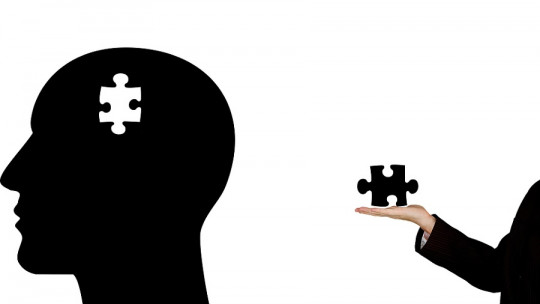The unnoticed consequences of the performance society, multitasking and hyperstimulation. This article is a wake-up call about the ways in which society affects us without us realizing it.
When we talk or read about psychology, most of the time we do so from the analysis of proximal variables of the individual. What does this mean? Well, much of the knowledge that psychology gives us comes from the analysis of topics such as: mental disorder; the influence on this of the person’s biography; problems caused within the family; or, sometimes, in the work context. However, these proximal contexts are not the only ones that can have a worrying impact on people’s well-being. Not only do we live a personal story, our environment is not reduced to everyday interactions with work, family and friends. Human beings also inhabit ‘macro’ social contexts. We live in times, each with its advances and challenges. We also live in countries, each with its customs and rituals. And all this is also likely to affect us.
In this sense, in this article I wanted to bring an example of analysis ‘macro‘, an example of how variables in the contemporary social context affect us to a point that goes unnoticed by us. This analysis comes from Mark Fisher in his work ‘capitalist realism‘, and represents a analysis of how modern, digital and hyper-accelerated culture influences our minds, our lifestyle and even the consideration or tolerance of some internal experiences such as boredom.
What is depressive hedonia?
The concept that I want to rescue from Fisher’s work is that of depressive hedonia. Depressive hedonia is in a certain sense the counterpart of the apathy and anhedonia typical of depressive states. While depressive apathy is characterized by the inability to feel pleasure, this depressive hedonia is characterized by the inability to feel or want anything other than pleasure. This constant search for pleasure is an almost natural condition of those modern societies characterized by abundance, abundance that translates into a hyperstimulating world to the point of exhaustion. Only in a modern society of this type, is a human capable of entering into a dynamic of exacerbated consumption of stimuli. The reasons for such consumption can be reduced to two types of analysis: one focused on the function of the person’s behavior, and another focused on the direct impact on the person’s neurology.
The first analysis, focused on the function of behavior, It is based on the question about “why” the person does something. What do you seek to achieve through your behavior. In this sense, the functions of exacerbated consumption can be very varied, but in the clinic, we, psychologists, find above all an enormous need to cover up the discomfort through stimulating intoxication. Not giving time for any pause, nor the opportunity to look inward, are pseudo-strategies that serve to disconnect and that can be achieved through the constant flow of stimuli. If my consciousness is a cinema screen, projecting insubstantial or garbage content onto it automatically denies the possibility of unpleasant thoughts, images and sensations being projected onto that screen, which, ultimately, is me.
On the other hand, we have the analysis focused on the involvement of neurology, which translates into certain changes in people’s cognitive abilities. We all have a baseline for each ability. We all have, for example, a degree of lack of stimulation that we can tolerate without, for example, feeling bored. Likewise, we all have a personal pain threshold, and even a threshold for tolerating fatigue. These thresholds are not absolute, but can be subject to change, and these changes are often achieved through habits.
If, let’s say, because I am a professional wrestler, I receive a significant amount of blows every week I fight, my pain threshold will increase, making me more tolerant of it. We can find similar examples regarding food intake. What I want to get at is that, if normally, a person, let’s say, can tolerate 45 minutes of inactivity due to the absence of stimulation, by being constantly exposed to stimulation (phones, advertisements, calls, notifications, lights on the streets…), Your ‘mind’ will get used to the stimulating noise, since it has become habitual for the person, so that, the next time you have to spend those 45 minutes in absolute silence, it will be a little more difficult. Thus, little by little, we get used to our minds to noise and need to be filled with stimuli for as long as possible.
The closest consequences of this new sociocognitive change , so to speak, there are two: first, a greater intolerance of boredom. Second, an increasingly volatile attentional capacity, since people are less and less accustomed to resting for long periods of time in front of the same stimulus. And it is worth highlighting that the stimuli that come to us in this modern era are increasingly fleeting and superficial. One no longer needs to read a pamphlet that will take more than an hour, if he can obtain similar information through a two and a half minute TikTok.
In the same way, one no longer even needs to consume an entire audiovisual product when one has tons of video summaries and highlights at hand. On the other hand, ‘multi-tasking’ It is increasingly the order of the day in our work contexts, even being considered a desirable ability. In front of our grandmothers, satisfied and absorbed only looking out the window at home, we find ourselves, who sometimes not even using the telephone is enough, who have to do something while or have something on in the background. Needing to do several things at the same time, not being able to watch a movie without picking up the phone several times, reading becoming an increasingly unbearable act, making micro-agreements with ourselves to allow us that microdose of mobile phone between activities… We are attending the era of noise. And the constant noise, obviously, although it can turn us into addicts, is tiring.

How then can I resist as a citizen these new sociocultural dynamics?
Next, I will provide some ideas or general guidelines. However, if you feel that these dynamics overcome you, making you feel trapped and unable to take control of your life It is best to seek professional help familiar with this problem. Being a new and little-recognized problem of the time, not every professional will be familiar with it, but psychological knowledge can be sufficient in itself to address this type of problem through its knowledge of learning laws and human needs. Without further ado, I leave you with the guidelines:
- Have as a mantra: “do only one thing at a time”. If I must clean, I clean and nothing more. And if I want to listen to music, I will only listen to music. In this way I will be cultivating my ability to have full and directed attention towards what concerns me.
- In terms of attention and mindfulness, meditation It stands as a natural remedy for these accelerated and hyperstimulating dynamics that we are presenting as so dangerous. Finding a few minutes to meditate a couple of times a day is a great way to take care of our attention. We must never forget that our attention is one of the most valuable capacities we have. Attention is the focus and beacon of consciousness. The contents of my mind depend on it. What I focus on constitutes my world, so taking care of my attention is also taking care of my own life and my own world.
- Reduce screen time. Those who work with a computer are free from guilt. We understand that this time requires time between screens. But, if you, the reader, work in front of a computer, then you have more reasons to invest your free time outside of them.
- Allow yourself to do nothing. In these times in which productivity is enshrined almost as a moral duty, learning to be bored and do nothing is a completely revolutionary behavior in the face of the accelerated rhythms of our time.
- Spend time in nature. While the city offers us a constant bombardment of stimuli (advertisements, lights, posters, traffic signs…), a natural landscape is not intentionally as demanding as a city. Enjoying the peace that nature invites us to can be another good measure.
However, this article is intended to be an invitation to its readers to defend the naturalness of their lives in the face of an increasingly saturated and accelerated society. We encourage you to carefully weigh what you have read, especially what is stated in point 2) about attention. I repeat: there is no capacity more ours and more definitive for our lives than attention. Taking care of it is like taking care of your body through exercise or diet; or how to take care of yourself through education and reading. We are told a lot about the need to cultivate ourselves or keep our body healthy, but little is said about the importance of aspects that go unnoticed by us, perhaps because they are so implicit, but that are as fundamental as attention.









